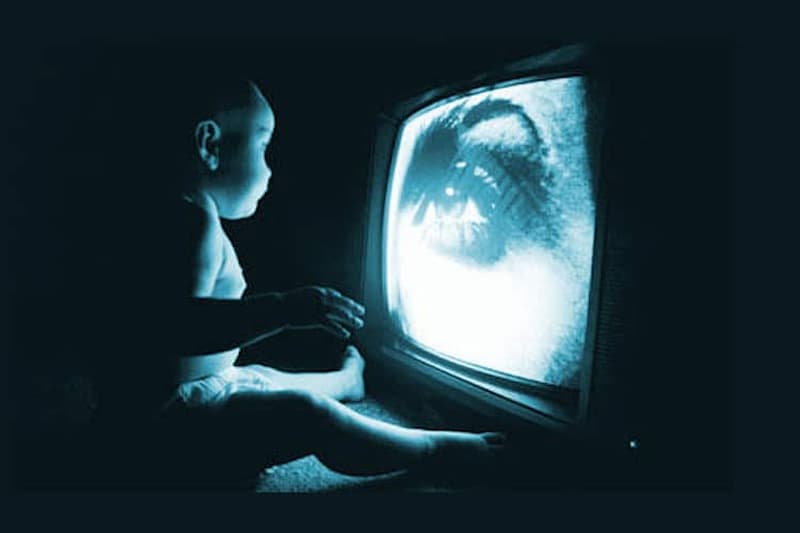(Phillip Schneider) A documentary titled Pseudology: The Art of Lying tells what many of us already presumed. Watching television does put the viewer in a suggestible, almost hypnotic, state of mind and suppresses our ability to think critically.
by Phillip Schneider, May 3rd, 2021
The documentary explains:
“If you’ve ever experienced a mind fog after watching television, you’re not alone.
The brain has four modes that it operates in, and four brain wave patterns. Delta is when you’re deep asleep, Theta is when you’re in light sleep, Alpha is awake but relaxed, it’s the mode of thinking that you are in when you’re in the most heightened state of suggestibility, and then there’s Beta, the highest functioning mode like when you’re reading a book or you’re having a very stimulating conversation.”
According to research dating back to the 1960’s, scientists have consistently found that in less than a minute of television viewing time the brain switches from Beta to Alpha state, where the mind is incredibly suggestible and loses its capacity to clearly determine between right and wrong.
“In about 90 seconds of viewing it, the frontal lobe circulation begins to go down and it actually has an adverse effect.” ~ Dr. Neal Nedley
The frontal lobe is the part of our brain which deals with morality, spirituality, judgment, and decision making. Without it our personalities are virtually nonexistent and we have essentially no agency or mental connection to a higher spiritual power.
As a result, our lives have become increasingly unfulfilling. The more time we spend staring at screens, the less time we spend accomplishing something meaningful and the less we are able to articulate just what makes our lives meaningful to begin with.
“There’s more fun things to do than ever before in human history but yet we have more depression than ever before in human history, more anxiety, mental health problems are skyrocketing throughout the world and the entertainment medium is one of the primary reasons why this is occurring.”
Even more interesting are studies investigating the affect of night time television viewing on how a person feels the following day. As it turns out, the more television you watch at night, the more likely you are to have a bad next day.
“Studies will clearly demonstrate that when you go to entertainment as a way to either get fun and it becomes a habitual process, the risk of depression and anxiety will more than double.”
In a way, television not only influences our state of mind, but in extension, the way we perceive the world around us. Dr. Michael Rich is an expert in the area of the effect TV has on the mind and describes the experience of watching a 3D movie like this:
“So what does your brain do when you’re sitting there in a theater, looking at a giant screen, wearing 3D glasses, swimming in surround sound, and processing the 24 images that flip by per second? Your brain dutifully processes those stimuli–and does little else. In fact, your pre-frontal cortex, which is involved in impulse control, future thinking, and moral choices, is basically inactivated in this process. That’s part of why you ‘get lost’ in the movie.”
It’s not easy to cut out screen time entirely. However, we can all take steps to get outside, appreciate nature and community, and take back our capacity to think for ourselves.
You can watch a section of the documentary on YouTube or purchase the full movie on their website.
Stillness in the Storm Editor: Why did we post this?
The news is important to all people because it is where we come to know new things about the world, which leads to the development of more life goals that lead to life wisdom. The news also serves as a social connection tool, as we tend to relate to those who know about and believe the things we do. With the power of an open truth-seeking mind in hand, the individual can grow wise and the collective can prosper.
– Justin
Not sure how to make sense of this? Want to learn how to discern like a pro? Read this essential guide to discernment, analysis of claims, and understanding the truth in a world of deception: 4 Key Steps of Discernment – Advanced Truth-Seeking Tools.
Stillness in the Storm Editor’s note: Did you find a spelling error or grammatical mistake? Send an email to [email protected], with the error and suggested correction, along with the headline and url. Do you think this article needs an update? Or do you just have some feedback? Send us an email at [email protected]. Thank you for reading.
Source:
Support our work! (Avoid Big Tech PayPal and Patreon)DIRECT DONATION


Leave a Reply